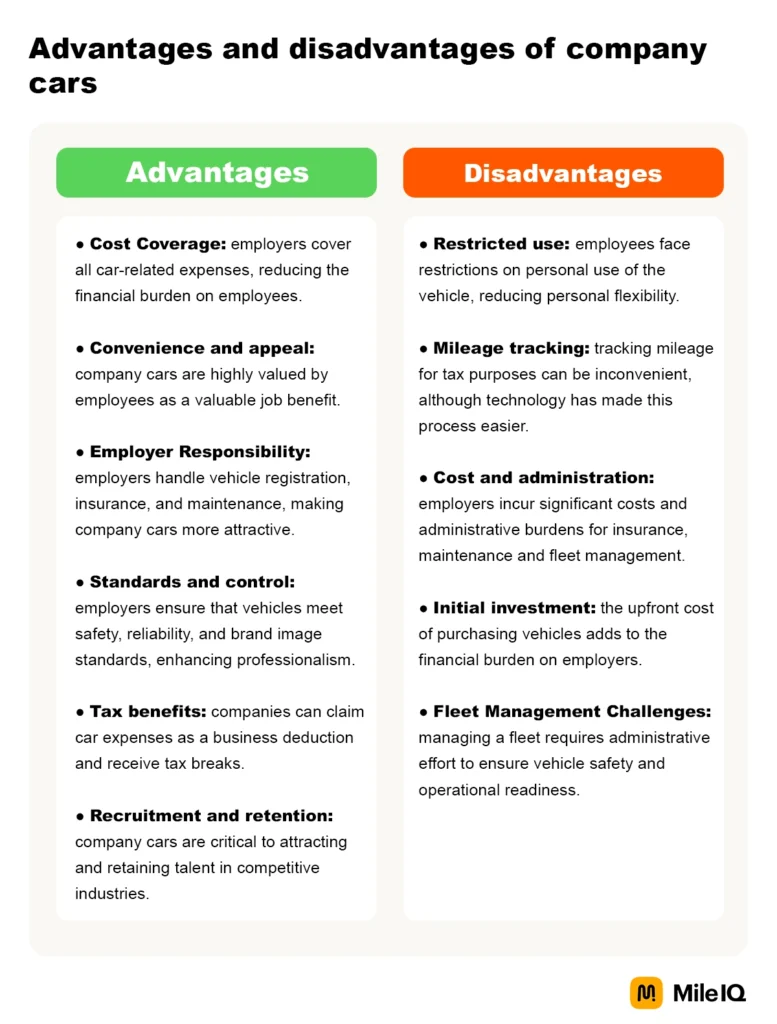Company car schemes are a popular perk offered by many employers to their employees. These schemes provide employees with the use of a vehicle for both business and personal purposes, typically funded by the employer. This arrangement offers several benefits for both parties involved. Employees enjoy tax advantages and reduced commuting costs, while companies can enhance employee satisfaction and promote brand visibility.
This article will delve into the intricacies of company car schemes, exploring their benefits, tax implications, salary sacrifice options, BIK taxation, fuel allowances, insurance responsibilities, and ultimately provide a comprehensive understanding of how how do company cars work.
Company Car Benefits
Company car schemes offer a range of advantages for employees. Firstly, they can significantly reduce commuting costs. By using a company car for both work and personal travel, employees can save on fuel, maintenance, and public transportation expenses. This financial benefit can be substantial, especially for those with long commutes or frequent business trips.
Secondly, company cars often come equipped with desirable features and technology that may not be affordable to purchase individually. Employees can enjoy the convenience of a reliable vehicle with advanced safety features, comfortable interiors, and efficient engines. This can enhance their overall driving experience and provide peace of mind on the road.
Furthermore, company car schemes can boost employee morale and satisfaction. Having access to a company car can be seen as a valuable perk that demonstrates an employer’s commitment to employee well-being. This can lead to increased motivation, loyalty, and productivity among employees.
Tax Implications of Company Cars

While company cars offer numerous benefits, it’s crucial to understand the tax implications associated with them. The primary tax consideration is Benefit-in-Kind (BIK) taxation. BIK is a taxable benefit that applies to the value of using a company car for personal use. The amount of BIK payable depends on various factors, including the car’s CO2 emissions, list price, and the employee’s salary.
The tax liability for BIK is calculated as a percentage of the car’s value, which is added to the employee’s taxable income. This can result in an increase in their overall tax bill. It’s important for employees to factor this into their financial planning when considering a company car scheme.
Salary Sacrifice Schemes
Salary sacrifice schemes offer a way to reduce both the employer’s National Insurance contributions and the employee’s income tax liability. In this arrangement, the employee agrees to forgo a portion of their salary in exchange for the benefit of a company car.
The sacrificed salary is then used to fund the cost of the car, which reduces the taxable value of the benefit. This can lead to significant savings on both income tax and National Insurance contributions for the employee. Employers also benefit from reduced National Insurance costs, making salary sacrifice schemes a mutually beneficial arrangement.
Benefit-in-Kind (BIK) Taxation

As mentioned earlier, BIK taxation is a key consideration when it comes to company cars. The amount of BIK payable is determined by the car’s CO2 emissions and list price. Cars with lower CO2 emissions attract a lower BIK rate, encouraging employees to choose more environmentally friendly vehicles.
The BIK tax rates are reviewed annually by the government and can fluctuate based on various factors. It’s important for both employees and employers to stay updated on the latest BIK rates to ensure accurate calculations and minimize tax liabilities.
Fuel Allowances and Insurance
Fuel allowances are often provided to employees who use company cars for business purposes. These allowances help cover the cost of fuel used for work-related travel. The amount of the allowance is typically based on mileage or a fixed rate per mile.
Insurance responsibilities also need to be clarified in company car schemes. In most cases, the employer is responsible for insuring the vehicle. However, it’s important to check the specific terms and conditions of the scheme to understand who is liable for any insurance claims or excess payments.
Conclusion
Company car schemes offer a range of benefits for both employees and employers. They can reduce commuting costs, enhance employee satisfaction, and promote brand visibility. However, it’s crucial to understand the tax implications associated with these schemes, including BIK taxation, salary sacrifice options, fuel allowances, and insurance responsibilities. By carefully considering these factors, both parties can navigate company car arrangements effectively and maximize the benefits they offer.



